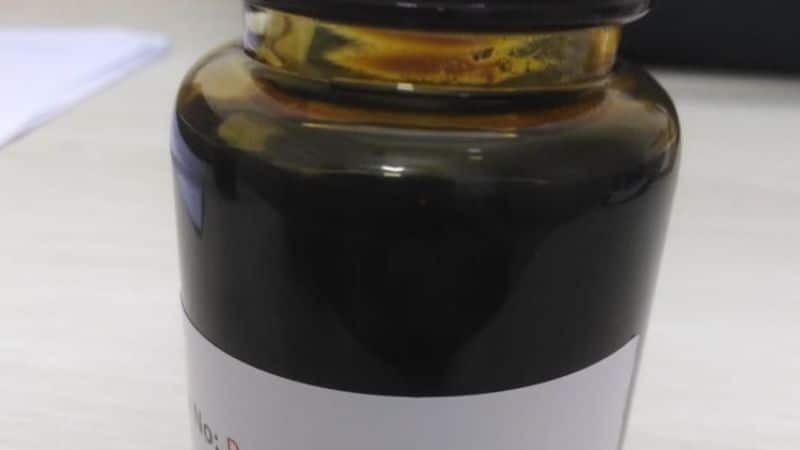You may be wondering about what is oil degradation. Well, the degradation of oil resins, sludges, oxidation products, and varnishes – is a common problem in various industries.
When you use the oil, it will reduce over time depending on the oil types, temperature, and operating conditions. Besides this, it can negatively affect hydraulic systems and lubrication. Also, it can lead to corrosion of metal surfaces, valve sticking, varnish, and lacquering.
These problems can have serious consequences for machine performance and reduce the reliability of the machines. Most importantly, removing oil corrosion products dramatically reduces unplanned production and increases the component life. Here below we also have discussed oil degradation causes and solutions. So read on.

Causes of Engine Oil Degradation:
Oil deterioration can be caused by many different technical issues. It means that if you can’t understand first why your oil is degrading it’s likely to result in higher costs. The most common causes of the deterioration of oil are listed below:
Oxidization:
It is the reaction of substances with oxygen. Often when oxidation causes the fluid to retain viscosity, particles form, additives in the fluid degrade, and the oil breaks down. Eventually, the components that use the oil start to rust and corrode.
Thermal Breakdown:
If the temperature is too high, the viscosity may decrease so much that the oil decomposes. At the other end of the spectrum, a rapid reduction in temperature can lead to an expansion in viscosity.
The Arrhenius rate law for temperature states that for every 18°F the chemical reaction doubles. In other words, for every 18°F increase in your oil, the oil’s life is cut in half. Keeping the oil cool during use will increase its life. And it decreases the reaction to thermal breakdown.
Additive Depletion:
Most additive packages are designed to perform special functions and are used over the oil life. Using oil analysis to monitor additive levels is critical to assess lubricant health.
Contamination:
Contaminants like water, dirty air, etc. can significantly affect the degradation. Dirt containing fine metal particles will be a catalyst that sparks the lubricant degradation process.
Water and air deliver a source of oxygen that reacts with the oil and leads to lubricant oxidation. Here again, oil analysis can monitor contamination levels in your lubricant.
Pressure-Induced Thermal Breakdown:
This happens when an air bubble transitions from a low-pressure region to a high-pressure region of a system. It is found especially in hydraulic systems but in all areas of lubrication.
Pressure-induced thermal breakdown causes the temperature of air bubbles within the oil to rise. It can cook the surrounding oil molecules, and instantly oxidize them.
Engine Oil Degradation Time:
Hard to say without analyzing the engine oil degradation time. The problem is not that the engine oil loses its viscosity. This is because, in most climates, engine oil collects moisture over time, which can damage engine equipment.
Oil degrades over time, but engine heat and combustion byproducts dramatically accelerate the process. If you make very short trips, the problem is increased. You know that engine oil is organic. Everything organic except honey goes bad over time. If you want to save money from repairs you should change your oil every 6 months or once a year.
Oil Degradation Bacteria:
For several years, to degrade oil spills, scientists have pursued genetic modifications to increase various engineered bacteria’s abilities.
However, to date, nothing, inside or outside the laboratory, has been as effective in oil bioremediation as naturally happening microorganisms.
After 2010, millions of gallons of oil-dispersing chemicals were used to accelerate oil evaporation into the atmosphere. Scientists at the time didn’t know that reducing the oil to small droplets would increase billions of natural oil-degrading bacteria.
There is nothing as effective as tiny hydrocarbon-degrading bacteria. According to Jay Grimes, man-made microbes are no more effective at using hydrocarbons than naturally occurring bacteria.
Preventing Oil Degradation:
You can prevent oil degradation with lubricant additives. These additives can protect the base oil by degrading it before it does. Therefore, it also protects the molecular properties of the base oil.
Once the additives are consumed, the base oil is again vulnerable to degradation, the first sign is discoloration. Additives exist in various forms, including detergents, emulsifiers, anti-wear agents, and rust inhibitors.
Final Word
On the other hand, a healthy lubricant keeps the machine healthy. Hence, selecting proper lubricant is very important for the efficient operation of machinery. Abnormal machine behavior can be easily noticed by observing noise, vibration, and vibration.
Overall, by understanding the factors of what is oil degradation, you can take steps to prevent it. It’s because, if you don’t understand oil degradation it can lead to catastrophic failure of your engine. To know more information about oil degradation you can contact us.
